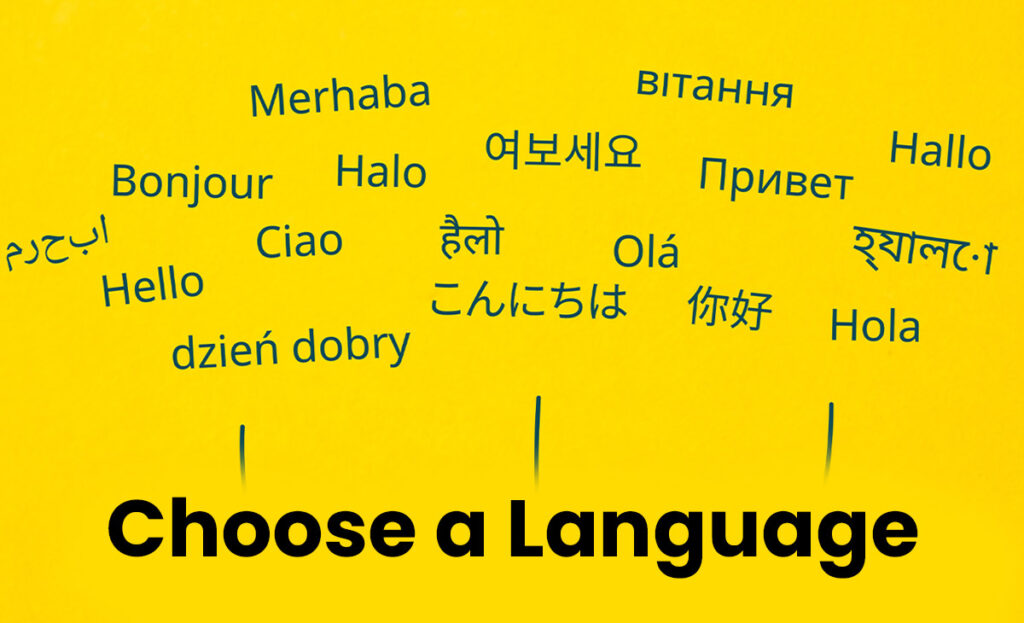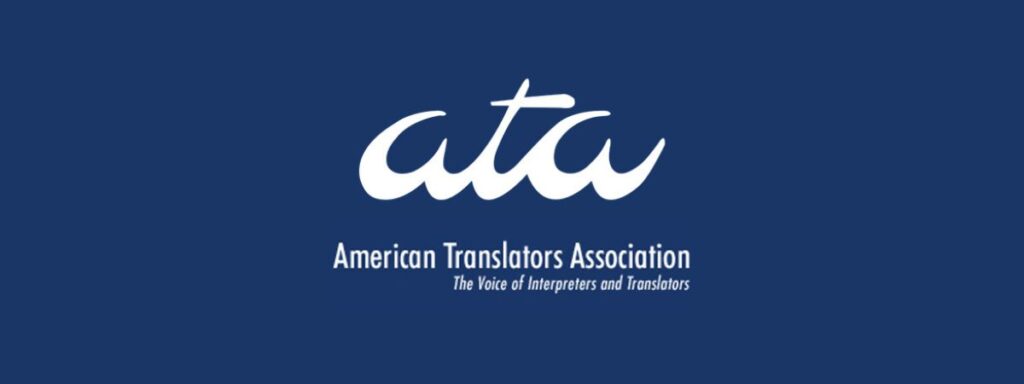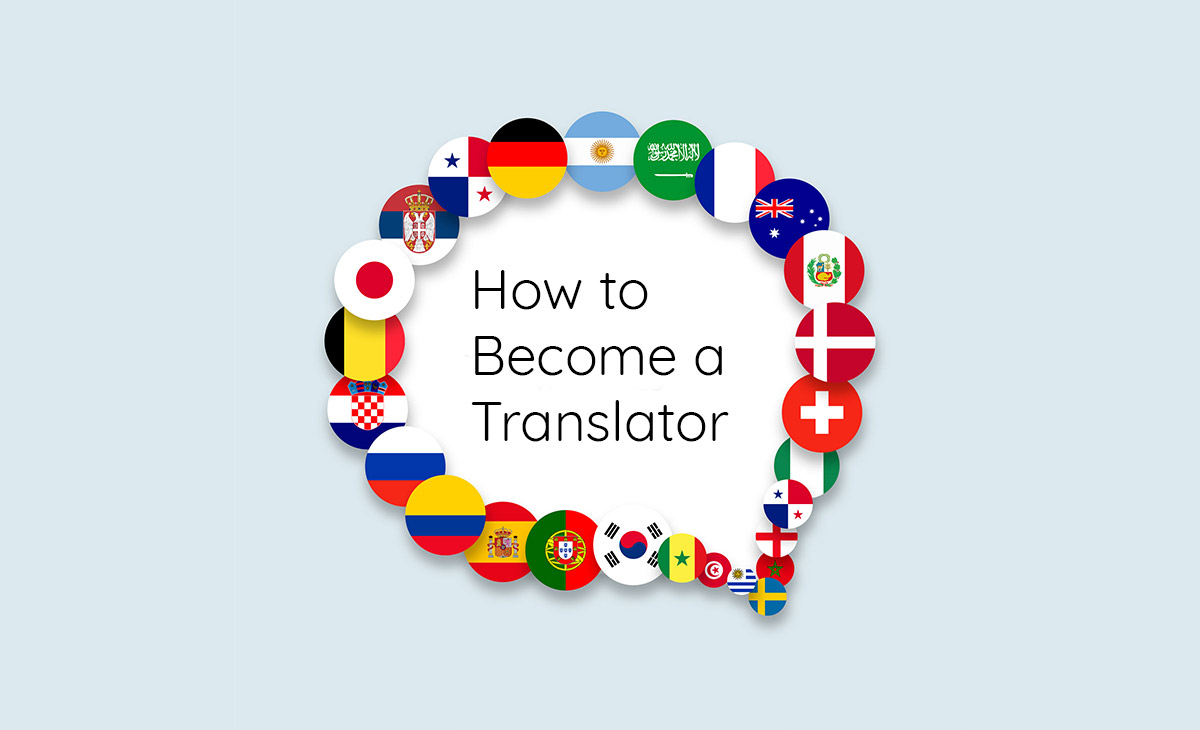Do you have a deep interest in other languages? Are you fluent in both your native language and a second language? Would you like to become a translator? Some people who are fascinated with other languages long to do translation work, but they may not know how to become a translator.
If you find yourself questioning how to become a translator, you’ve come to the right place. We’ve put together some information on the steps and certifications it takes to become a professional translator.
Table of Contents
Understand the Role of a Translator
At the core of their responsibilities, a translator works to translate text from a source language to the target language. However, there’s much more to being a translator than only providing mechanical translation work.
A professional translator also has a direct impact on communicating with the target language’s audience. The audience is called the “target audience.” The translator’s role is to make sure the original message is correctly translated and comes across to the audience precisely as the author intended. There should be no distortion of the message.
In other words, the translator must also ensure the context of the message is carried from the original language into the target language. This is where things can get a little tricky with translation work.
The translator bears the responsibility of understanding the culture of the target audience and accurately conveying the message of the original text within that cultural context. The successful translation of the text in this manner can create trust and credibility with the target audience.
Professional translators, such as Pollion, may also specialize in one or more industries. For instance, one translator may work in the financial industry, while another chooses retail marketing. No matter which industry a translator chooses, they must be able to translate correctly and have an understanding of different cultures.
Translators can have many responsibilities in addition to accurately translating text. They may also be responsible for the following:
- Have the ability to speak, read, and write fluently in at least two languages
- Translate written materials between two different languages
- Conduct research to gain an understanding of the context, culture
- Avoid the use of jargon, slang, or other expressions, as these don’t translate well
- Carry the style and tone of the original language into the target language
- Create glossaries and terminology banks to use on future projects
- Efficiently manage their time to successfully meet project deadlines
Only in this way can translated content effectively reach its target audience. And this all comes down to the expertise, talent, and care of the professional translator. They build a bridge from one language and culture to another.
Related Article: Marketing Yourself as a Freelance Translator
Choose a Language or Languages to Specialize In
So, how do you become a translator? There are several steps that are necessary to becoming a translator, including the following:

1. Extensive Study of the Your Chosen Languages
In order to be an effective, accurate translator, it’s necessary to choose a language and study it deeply. Some translators grow up in bilingual households and become fluent in both languages spoken. Another option is to choose the second language you’d like to work with.
Most translators, like Pollion, recommend that you start to learn a second language in high school and continue studying this language into college. It’s a good idea to earn a bachelor’s degree in your chosen language, though it is not required.
As you study the languages you want to work with, you must have an extensive understanding of each language’s grammar and specialized terminology and develop cultural awareness.
2. Certification as a Professional Translator
In most cases, translators are not asked to have certification to provide translating services. However, certification can show that you have the right skills for the work. Certification may also mean that more employers are interested in your services.
The American Translators Association offers the ATA certification program. You can become certified in over 29 languages included in this program. Once you’ve become certified, the ATA gives you the designation of “Certified Translator.” You can use this designation on your CV.
So, it’s also a good idea to research any possible translation certifications that may be available in your industry.

3. Gain Practical Experience Through Internships or Volunteer Work
How to become a translator? Another way is to gain practical experience through internships or volunteer work. Many organizations within the community may need translators, including hospitals. In addition, certain businesses may also offer internships where you can gain more work experience.
It’s also possible to offer your translation services online. For instance, an organization called Translators Without Borders uses volunteers to translate content. They provide translation services for non-profits, train new translators, and more. Translators Without Borders works across the following fields:
- Crisis response
- Capacity building
- Language advocacy
Any of these methods is a great way to gain practical experience and knowledge. Plus, you can help organizations that would otherwise lack professional translation services.
4. Choose an Industry and Learn the Terminology
Once you’ve chosen an industry to work in, it’s necessary to learn the particular terminology used within that industry. When you understand the specific terminology, it’s much easier to translate the content and context correctly and effectively from the source language to the target language.
5. Develop Strong Writing and Editing Skills
As you learn how to become a translator, it’s essential to develop strong writing and editing skills. Translators need to understand how to use the right words with flair. You can use these methods to improve your writing skills:
- Consider taking a writing course
- Read the translations you’ve done out loud (this helps find phrases that sound unnatural, as well as other issues)
- Read a wide range of content to improve your vocabulary
- When you come across certain wording you like, write it down to use it in translation projects (when applicable)
You can also improve your editing skills using these tips:
- Take a break after translating content, then go back and edit the material
- Edit before proofreading the material; follow the style guide that’s included with the project
- Proofread your text thoroughly; look for unnatural phrasing, grammar and spelling errors, and more
6. Build a Professional Portfolio
You’ll find information about building a portfolio as you learn how to become a translator. Not many people know that translators make professional translation portfolios. So, how can you build a translation portfolio when some content is protected by NDAs?
Use voluntary translations you’ve done for other organizations. These usually don’t contain confidential data so that you can use them in your portfolio. However, if you’ve translated personal medical or other sensitive data, be sure to check with the organization you worked with. Ask them if the material is suitable to use in your translator’s portfolio.
Specialized texts you’ve worked on can also be used in your portfolio. But if you have any questions about whether the material can be used in this manner, check with the organization you worked with.
Avoid violating copyright laws and make sure to get the proper attribution for any material covered by Creative Commons or other licenses.
7. Build a Professional Network
As you learn how to become a translator, it’s also a good idea to build a professional network. You can do this by attending organized events for translators. These may be sponsored by local businesses or organizations. These events are geared to help translators network with other translators or network with potential clients.
When you attend networking events, it’s best to have a professional business card. The business card should include your professional contact information, including:
- Your name
- Work phone number
- Professional email address (used for business)
- Business address (if desired)
- Any other information that’s essential for being a translator
Hand the cards out to people you connect with at these events. That way, if anyone needs to work with a translator, they have the information on how to contact you.
It’s also possible to network and connect with people through social media and websites. While these are definitely effective ways to market your translator services, face-to-face is still the best way to meet and make connections with others.
8. Stay Up to Date with Industry Trends and Technology
As a professional translator, it’s also necessary to stay current with industry trends and technology. Here’s a list of platforms you can use to stay up to date with developments in the translation industry:
- Slator
- Globalization and Localization Association (GALA)
8. Continuously Improve Language Proficiency
When you’d like to know how to become a translator, professional translators recommend working to continuously improve your language proficiency. You can do this in several different ways, including:
- Reading a dictionary (in the source language and the target language)
- Reading in the target language
- Talk with other translators (ask them for tips and more)
- Always work in your area of expertise
- Practice is necessary, no matter how great your translating skills have become.
9. Continuously Improve Cultural Awareness
Translations must be culturally sensitive in order to avoid misunderstandings and offense. Remember, it’s essential to do more than translate content from the source language into the target language. Cultural awareness is necessary for the best translations.
You can become more culturally aware in the following ways:
- Research your target culture
- Don’t produce literal translations
- Use local language variations
- Get feedback from native speakers as they can provide you with advice and guidance into whether the message of your content is appropriate for their culture (or not)
Concluding Thoughts
Many people wonder how to become a translator. The good news is that you can become a translator by following the tips in this article.
The key is to gain as much knowledge as possible about your source language and target language. You’ll also need to learn as much as possible about the target culture. The goal is to produce a translation in the source language that carries the meaning, context, and the proper cultural awareness to the target audience.
Fulfilling these requirements will make you a successful and professional translatorMaybe you’ll be able to find work with a professional translation company, like Pollion!
